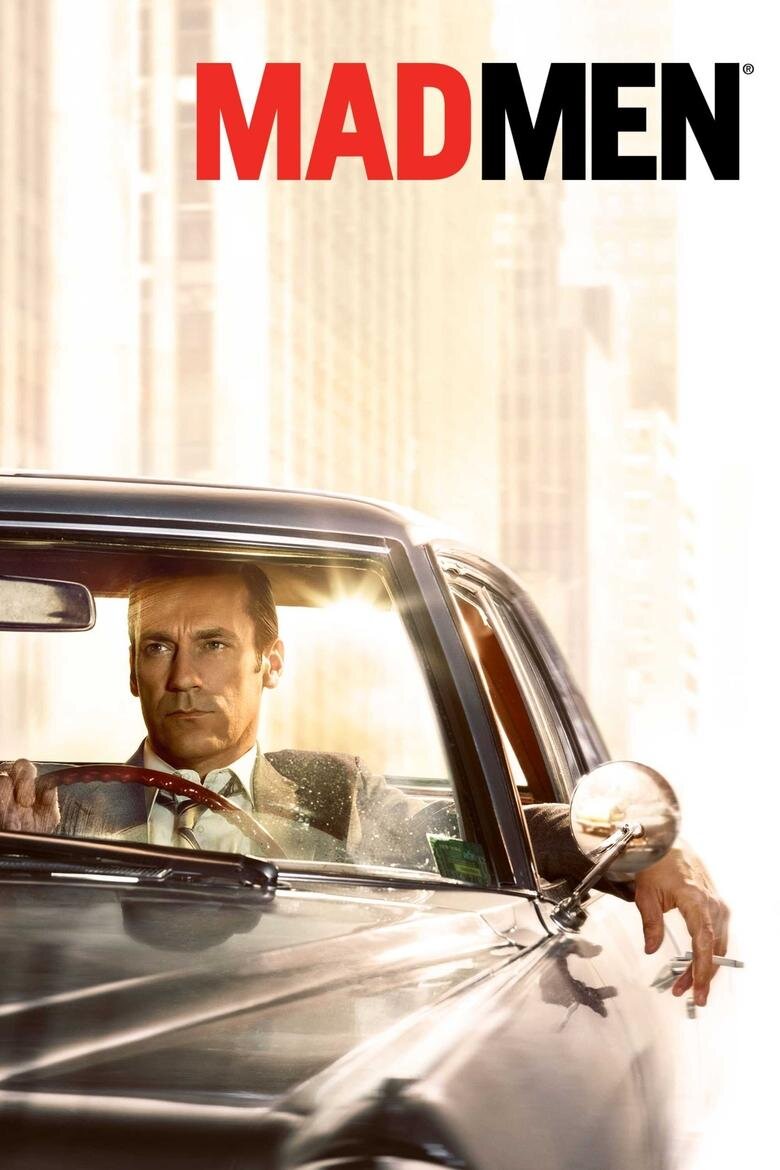Mad Men
The Doorway (2)
Season: 6
Episode: 2
Air date: 2013-04-07
Guest stars: Talia Balsam,Elizabeth Rice,Michael Gaston,Linda Cardellini,Peyton List,Brian Markinson,Beth Hall,Stephanie Drake,Trevor Einhorn,Teyonah Parris,Kit Williamson,Pamela Dunlap,Derek Ray,Patrick John Hurley,Charlie Hofheimer,James Wolk,Tyler Francavilla,Ray Abruzzo,David Starzyk,Kalani Queypo,Loanne Bishop,Patrick Mapel,Rob Brownstein,Pat Skipper,Michael Bunin,Kerris Dorsey,Barbara Tarbuck,Wes Robinson,Brett DelBuono,Jesse James,Rod McLachlan,Steve West,Matt Corboy,Wendy Benson-Landes,Ann Benson,Marcia Ann Burrs,Barrett Shuler,Tracy Silver,Erica Shaffer,Mike Peebler
Don strikes up a friendship with the surgeon in his building, Peggy tries to save her campaign, Roger makes a scene at his mother's funeral, and Betty goes to Manhattan to find Sally's friend.
"People will do anything to alleviate their anxiety."
When my father died a year ago — heart attack, sudden, brutal — we didn’t even realize until 30, maybe 40 minutes after. Just... laid out on the floor. It’s an understatement to say my relationship with my parents was strained. Growing up in the '90s as a Singaporean Chinese boy basically meant you got the full brunt of the Asian Parenting Discipline Kit™ — rattan canes, shame as a weapon, and the occasional reminder that your gender was a disappointment. I still remember my mother muttering that she should’ve given birth to a more compliant daughter. Real confidence booster, that one.
Point is that when my father passed, I didn’t cry. Didn’t feel shattered. Mostly, I was afraid he’d come back to haunt me, fueled by Chinese superstition and guilt. But nothing happened. Time just moved on, quietly, mercilessly.
In some ways, watching
The Doorway, Part Two, I saw that same quiet numbness reflected in Roger Sterling — and in almost everyone else. There’s this unspoken fear:
"Is something broken in me because I’m not feeling the things I’m supposed to feel?" And in true
Mad Men fashion, the show doesn't answer the question. It just lets it hang there, bleeding out slowly.
If Part One was existential dread in Hawaiian sunlight, Part Two is the silent, spiritual death that follows. Nobody's falling down weeping dramatically. Instead, death lingers like a fog — a smell you can’t quite wash off. Sometimes obvious, but mostly just there, soaking into everything.
Character arcs this hour all revolve around that rot creeping in, some more quietly than others. Don for example, bless him, is trapped deep in his own anxious spiral — trying to alleviate his dread the only way he knows how: distraction, control, self-destruction. There’s a self-loathing to him that’s thicker than ever, but
Mad Men plays it so subtly you almost miss it until that subconscious desire for another doorway that will never come bleeds into his work. Suddenly, there he is, staring off into space with that signature Jon Hamm emptiness. He’s a man with everything he once thought he wanted — a wife, a career, respect — and yet you can practically see the walls closing in around him frame by frame. For this is season 6 — he can't just escape anymore, he's tried that routine. So now he's stuck in his Inferno, crawling through the Nine Hells of this season, finding himself amidst the dark woods. Every choice he makes this hour is about delaying the inevitable, kicking the existential can just a little further down the road.
Meanwhile, Betty is... surprisingly hardy this hour. Not hardy like a Strong Independent Woman™ — hardy like
nerves of steel, scraped raw, sharp around the edges as she crawls her way back into humanity
. I never hated Betty before (even if her parenting skills made my inner child flinch), but I never really respected her either — until now. And while the wildly inappropriate "joke" she made in Part One leaves a nasty aftertaste, here in Part Two, when she’s faced with real-world grime and danger, Betty doesn’t flinch. She steps right into the mess. And you realize — maybe all that armor wasn’t about vanity. Maybe it was about survival. It's almost as if she’s channeling some deep-seated aggression she’s never allowed to voice. She’s
supposed to be happy with Henry Francis, but something still itches under her skin, a purulent wound she has to scratch even if it wouldn't heal. Betty’s war isn’t with the world anymore. It’s with herself.
Roger, though, is the star of the existential parade here. His whole
"nothing matters, life is just pennies on the floor" speech isn't edgy nihilism — it’s a man trying desperately to hold onto something before he turns into dust right in front of us. His cool, sardonic mask — the one he’s worn like armor since Season 1 — finally starts to crumble. When the grief finally cracks through his perfect silver-haired mask, it’s almost unbearable — not because it’s loud, but because it’s
small. It’s real. It’s ugly and raw. It’s the kind of private breakdown you never show anyone if you can help it. It’s also some of John Slattery’s best work on the show, no question.
Peggy is perhaps the odd woman out in our morbid episode. She’s got momentum, drive, optimism — hell, even a little joy. But it’s bittersweet, because you can see how much she’s becoming Don Draper Lite with all of his worst habits, whether it's barking at subordinates, sacrificing everything for the pitch, or mistaking exhaustion and fear for inspiration. There's a tunnel vision there that blinds her to everyone around her, and she's winning for now, sure — climbing the ladder on her own terms — but every step upward feels like it costs her a little more of herself. The air’s thinner up there, and it’s starting to taste a lot like ash.
Bob Benson also slithers into the frame more noticeably now, and it’s amazing how fast you want to punch that smile off his face. He’s the kind of guy who would bring a "Get Well Soon" card to a funeral if he thought it might get him promoted. And when even Ken Cosgrove —
Ken Cosgrove, human Labrador retriever — has to tell you to sit down and shut up? You know you’re overplaying your hand.
Thematically, it’s no accident that death — both literal and spiritual — is front and center this season. Given what’s coming historically in 1968 (no spoilers, but let’s just say
not a great year for America),
Mad Men opening with death hanging over everything feels right. The show isn’t just chronicling a time of cultural collapse. It’s chronicling personal collapse too — all the ways people rot slowly before history even gets a chance to wipe them out.
Yeah, sure, the symbolism is getting a little heavier-handed than it used to be (we get it, Weiner. Doorways. Infernos. Baptism water that looks suspiciously like a jar of granny's peach tea from
BvS), but honestly? I don’t mind. The show has earned the right to underline a few things by now — and it still gives you plenty to chew on without spoon-feeding anything. Plus, I just find it easier to discuss these themes when they are laid on this thick. Gives me something interesting to talk about in my reviews.
The Doorway, Part Two doesn’t offer catharsis. It offers a slow, creeping realization that time is devouring everything you love, and you’re just supposed to keep smiling and selling yourself anyway. It’s beautifully ugly, and somehow, it still leaves you wanting more.
This is
Mad Men in full decay mode — and it’s glorious.
































